Hello! My name is Myriam, and I am doing a summer student placement at Glasgow Women’s Library – it is my last week sadly. I am currently attending Lyon’s Institute of Political Studies and in September I will be part of the MA Korean Studies at the SOAS.
Glasgow Women’s Library has an impressive collection of books; every time I am in the building, I see something new I’d like to read. It can be overwhelming at times, all those possibilities. So, I usually choose a book from an author I know, or with a title I recognise. I often wonder about all the books I do not pick, all the books I do not even know the library has. So, because my time as a student placement is ending soon, here is my little list of books available at Glasgow Women’s Library I would personally recommend, to whom and why.
If you like activist research:
Revolting prostitutes: the fight for sex workers’ rights by Molly Smith and Juno Mac
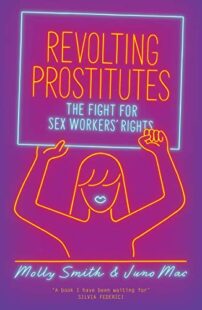
This work, as the title shows, was made in effort to support and promote sex workers’ rights. It explores all the legal systems made to regulate sex work all around the world. While there is a focus on anglophone countries and Europe, Smith and Mac use all the resources available to understand the theory and the practice of full criminalisation, partial criminalisation, legalisation and decriminalisation.
I recommend you read it if your position on sex work and how the state should regulate it is unclear, or if you want to hear about this theme directly from various voices of sex workers from all around the world.
It might not be the best fit for you if you don’t like works with many references to the law, other studies, and statistics, or if you are sensitive to testimonies of sexual harassment and drug use.
“When we make clear that we’re asking for the decriminalisation of sex work, we are persistently misunderstood to mean legalisation and are maligned as liberals, capitalists, or men’s-rights activists interested in securing the unimpeded primacy of make sexuality. If the decriminalisation of prostitution is falsely characterised as legalisation and the two are semantically bound together, then advocates for prohibition can blame both policies for the failures of one.”
If you like (auto)biographies:
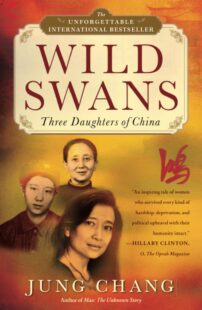
Wild swans: three daughters of China by Jung Chang
This book is in fact two biographies and one auto-biography following the maternal line of the author. A grandmother with bound feet forced to become a concubine. A mother part of the communist revolution during the civil war. Herself, living through the cultural revolution and death of Mao. Jung Chang manages to show how history marks and shapes individual lives.
I recommend you read it if you are interested in the history of modern China or communism, especially from women’s perspective, or if you like inter-generational stories.
It might not be the best fit for you if you don’t like long books with many dates, events and names to remember to follow the story.
“The Chinese seemed to be mourning Mao in a heartfelt fashion. But I wondered how many of their tears were genuine. People had practiced acting to such a degree that they confused it with their true feelings.”
If you like historical fiction:
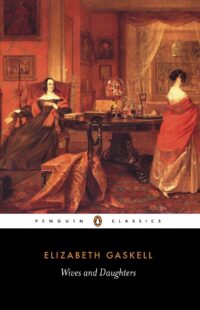
Wives and Daughters by Elizabeth Gaskell
Molly is a young girl living alone with her father that she adores since the death of her mother. However, this ideal childhood has to change when her father remarries a rather silly woman who moves in with her own daugher. Far from a traditional tale of evil step-mother and step-sister, Wives and Daughters is a journey into adulthood, womanhood. Through the double mirror of the two new sisters, the reader gets to see the complexity of developing into your own person.
I recommend you read it if you enjoy introspective tales discussing human character and relationships, especially within a family, or if you like slow-burn love stories.
It might not be the best fit for you if you don’t like quiet stories with minimal adventure.
“Oh! A little bird told us,’ said Miss Browning. Molly knew that little bird from her childhood, and had always hated it, and longed to wring its neck. Why could not people speak out and say that they did not mean to give up the name of their informant?”
If you like modern fiction:
Pachinko by Min Jin Lee
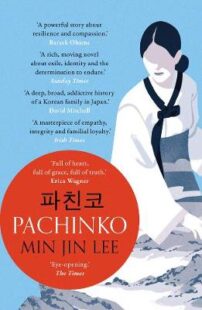
This book is a inter-generational fiction following a Korean family during Japanese colonisation and its aftermath. By following people of Korean ancestry living in Japan during the majority of the novel, the story allows the reader to access themes often not discussed around that time period of xenophobia and identity crisis. What does it mean to be Korean? How can you be a foreigner in your own country? Min Jin Lee interviewed numerous Japanese-Koreans, which gives depth and sincerity to her novel.
I recommend you read it if you like to see how history influences destinies at an individual level, or inter-generational stories.
It might not be the best fit for you if you don’t like harsh stories including death and sexual acts.
” […] she would not believe that she was no different than her parents, that seeing him as only Korean—good or bad—was the same as seeing him only as a bad Korean. She could not see his humanity, and Noa realized that this was what he wanted most of all: to be seen as human.”
If you like essays:
A Room of One’s Own by Virginia Woolf
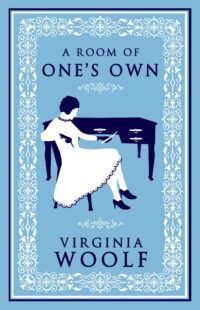
Though Virginia Woolf is best known for her revolutionary novels –and her tumultuous relationship with Vita Sackville-West, her essays have something to teach to each and every one of us. In A Room of One’s Own, Woolf answers the tiring question of “if men and women are equally talented, why are there more male writers?”. Focusing on the material side of what it means to be a talented artist, Woolf examines the differences between female and male writers, the important of the female subject and what would have been the destiny of Shakespeare’s genius sister had she existed…
I recommend you read it if you would like to know more about the history of literature, or if you are interested in how social and material needs influence the potential in people -here, women.
It might not be the best fit for you if you don’t like works using stream of consciousness.
“Suppose, for instance, that men were only represented in literature as the lovers of women, and were never the friends of men, soldiers, thinkers, dreamers; how few parts in the plays of Shakespeare could be allotted to them; how literature would suffer! We might perhaps have most of Othello; and a good deal of Antony; but no Caesar, no Brutus, no Hamlet, no Lear, no Jaques–literature would be incredibly impoverished, as indeed literature is impoverished beyond our counting by the doors that have been shut upon women.”
If you like poetry:
Selected poems by Christina Rossetti
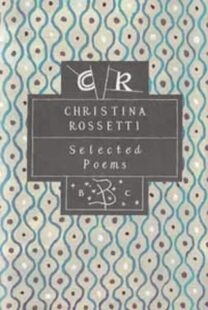
Christina Rossetti is the most conventional and subversive Victorian poet I can think of. Master of sonnet form, her poems roll off the tongue, and you want to read them again and again like a tune stuck in your head. It is easy to limit your analysis of her work to a good Victorian lady promoting the love of God and warning women against bad conduct. However, if you drive into her work, suddenly the double meanings start to appear, her wit and sarcasm when describing men’s behaviour and love stories, her strong sense of self, her unfaltering support of “fallen women”… Rossetti’s work has a place in our society more than ever.
I recommend you read it if you like classic poetic forms with a regular rhythm and rhymes, critical commentary on women’s condition, or short poems you will want to learn by heart.
It might not be the best fit for you if you don’t like Victorian English, or Christian imagery.
“[…] I have no heart?—Perhaps I have not;
But then you’re mad to take offense
That I don’t give you what I have not got:
Use your common sense.Let bygones be bygones:
Don’t call me false, who owed not to be true:
I’d rather answer “No” to fifty Johns
Than answer “Yes” to you. […]”
I would like to thank all the people and places that have allowed me to discover these books I can now introduce you to.

Comments are closed.